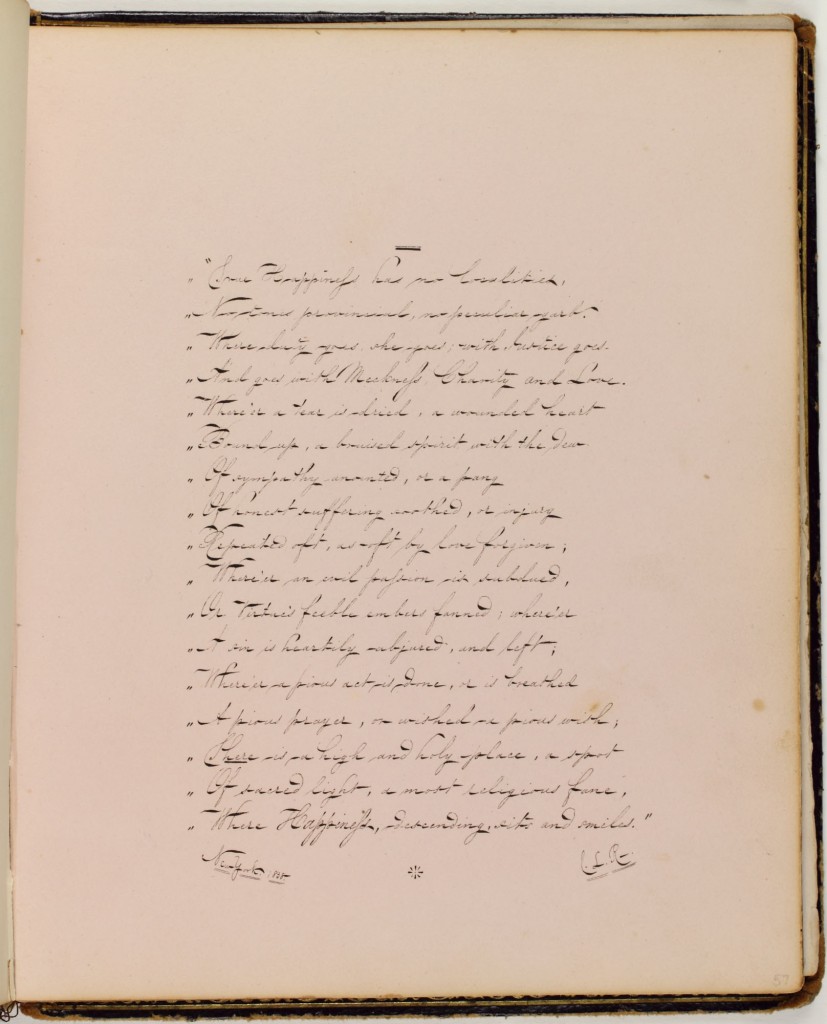Preface (3)
6|7|8|9|10|11-12|13|14|15|16|17|18|19|20|21|22|23|24|25|26|28|30|31|32|33
34|35|36|39|42|44|47|49|51|52|53|54|55|56|57|59|62| 63|64-68|70|73|75
 “True Happiness has no localities,
“True Happiness has no localities,
“No tones provincial, no peculiar garb.
“Where duty goes, she goes, with justice goes,
“And goes with Meekness, Charity, and Love.
“Where’er a tear is dried, a wounded heart
“Bound up, a bruised spirit with the dew
“Of sympathy anointed, or a pang
“Of honest suffering soothed, or injury
“Repeated oft, as oft by love forgiven;
“Where’er an evil passion is subdued,
“Or virtue’s feeble embers fanned; where’er
“A sin is heartily abjured, and left;
“Where’er a pious act is done, or is breathed
“A pious prayer, or wished—a pious wish;
“There—is—a high, and holy place, a spot
“Of sacred light, a most religious fane,
“Where Happiness,—descending, sits and smiles.
New York 1838 C.L.R.
The primary message of Scottish poet Robert Pollock’s (1798-1827) poem “True Happiness” transcribed by possibly Charles L. Reason is that there is no singular way to be happy. Pollock divorces true happiness from location and physical state when he writes that “true happiness has no localities” or “peculiar garb.” Anyone can obtain happiness no matter how unfavorable one’s situation. Rather than being tied to a particular location, happiness, is an inner spiritual state. A notion reinforced by the capitalization of “Happiness” and the references to “sacred light,” and “pious wish[es],” which connects Happiness with God.
The poem’s message that one does not need to be in any physical location to reap the benefits of friendship and happiness resonates with the friendship album.. The point of a friendship album is to delocalize friendship, allowing the contributor’s to the Cassey Album spread across the Eastern United States, from Plymouth to New York to Philadelphia, to remain in contact with one another.
Page 57: Transcribed from Robert Pollock, “True Happiness” in Henry C. Knight, Lectures and Sermons (Boston,1831).
